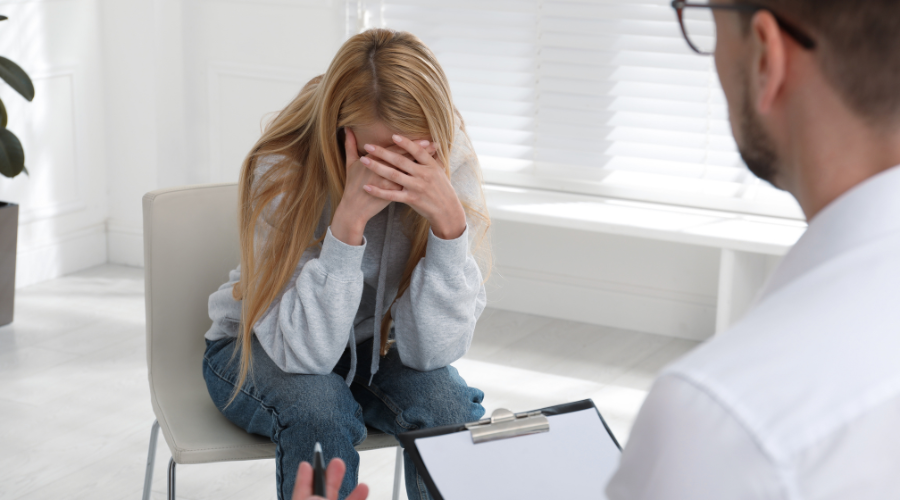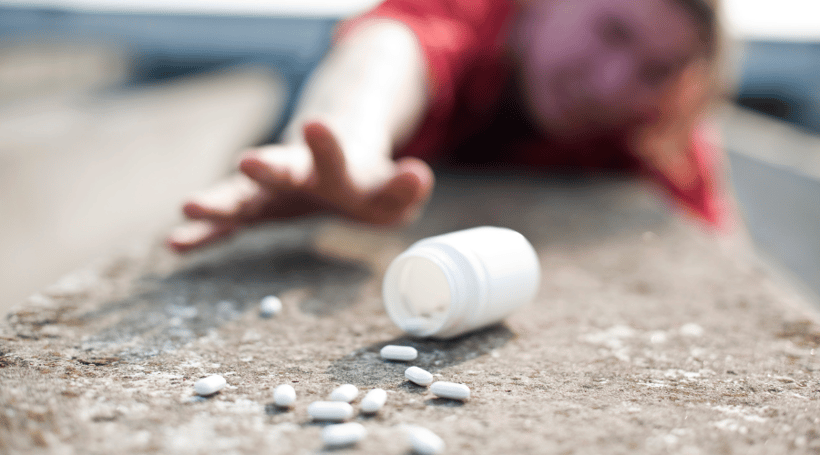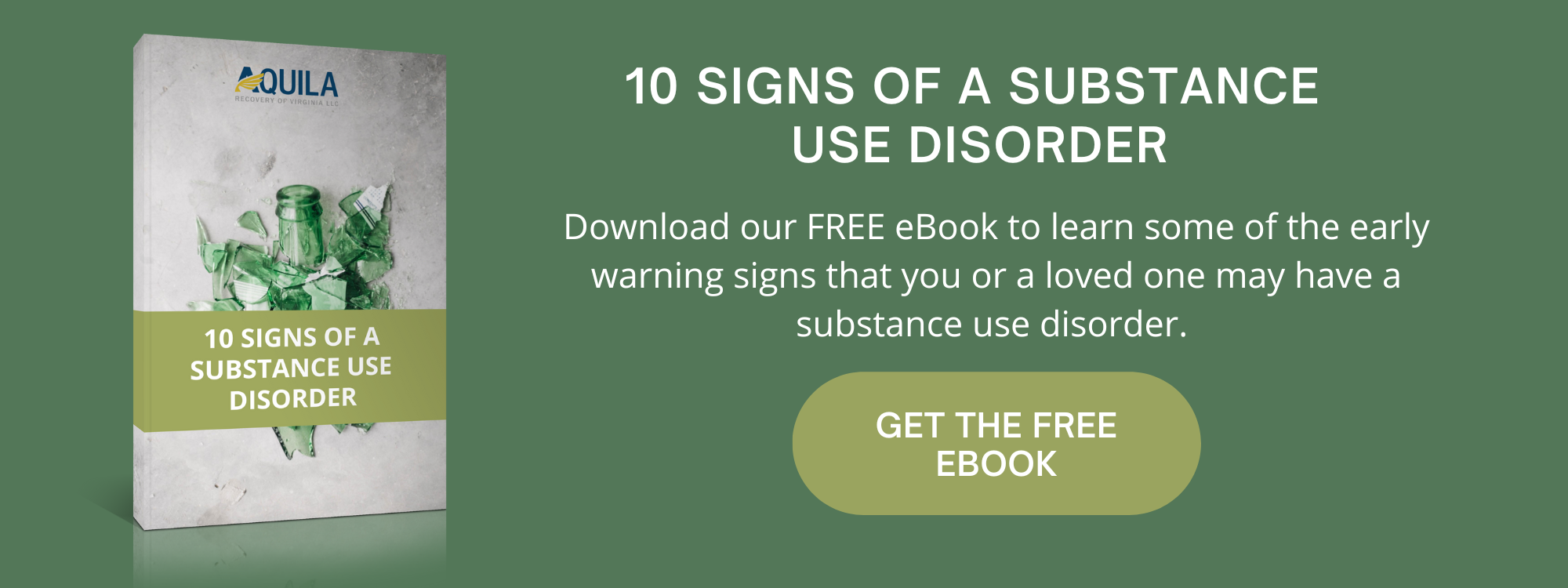The Ripple Effect: How Drug Abusers' Actions Affect Themselves, Their Families, and Their Communities
Substance use, often misused as "drug abuse," is a complex public health issue with far-reaching...

The opioid epidemic is a growing concern in the world today. It has affected millions of people, causing an increase in overdose-related deaths and other health risks associated with their use. Opiates are highly addictive drugs that can have severe short-term and long-term effects on the human body. This comprehensive guide will discuss everything you need to know about opiates, including their types, how they affect the brain and body, and the risks associated with their use. We will also delve into opiate misuse and addiction, identifying the signs of addiction, withdrawal symptoms, and available treatment options. Lastly, we will provide prevention strategies against opiate abuse and how society can contribute to preventing it. Read on to understand the dangers of opiates and how you can protect yourself or your loved ones from this growing problem.
Opiates, including morphine, oxycodone, and heroin, are a class of drugs that target opioid receptors in the brain. Often prescribed for severe pain management, they can cause side effects like nausea and constipation. However, when misused, they can lead to addiction and overdose. It's important to note that the misuse of opiates is a significant issue in the United States, contributing to the ongoing opioid crisis. The effects of opiate addiction can be devastating, impacting individuals, families, and communities. Understanding the risks and consequences associated with opiate use is crucial in combating the current epidemic.
Opiates, derived from the opium poppy plant, encompass a range of drugs with various effects. Examples of opiates include codeine, hydrocodone, and oxycodone. Commonly prescribed for pain relief, prescription opioids like OxyContin and Vicodin fall under this category. However, it's essential to note that heroin, an illegal opiate, is highly addictive. Additionally, fentanyl, a potent synthetic opioid, is often mixed with other drugs. Understanding the different types of opiates is crucial in comprehending their potential dangers and effects on individuals.
Opiates exert their effects by binding to opioid receptors in the brain as shown by NIH, relieving pain and inducing a sense of euphoria. However, they also depress the central nervous system, leading to drowsiness and respiratory depression. Prolonged use of opiates can result in physical dependence and the emergence of withdrawal symptoms when the drug is discontinued. Plus, opiate use increases the risk of overdose and death. Moreover, opiates can impact other bodily systems, causing constipation and hormonal imbalances. It is crucial to understand the profound effects of opiates on the brain and body to address the serious consequences associated with opioid addiction and misuse.
Short-term opiate use can result in side effects such as constipation and drowsiness. With long-term use, individuals may develop tolerance, necessitating higher doses for pain relief. Opiates can have severe health consequences, including respiratory depression and organ damage. The use of opiates raises the likelihood of contracting infectious diseases like HIV and hepatitis. It is important to be aware of these risks and approach opiate use cautiously.
Short-term use of opiates can result in drowsiness and nausea, while long-term use can lead to chronic constipation and hormone imbalances. Opiates have the potential to impair cognitive function and memory. Prolonged opiate use can also cause damage to the liver and kidneys. Additionally, opiates weaken the immune system, making individuals more susceptible to infections. These health effects highlight the dangers associated with opiate use. It is crucial to be aware of the short-term and long-term consequences of opioid addiction and the impact it can have on overall well-being.
Opiates, known for their euphoric effects, pose a significant threat to addiction and dependency. Regular usage can lead to physical dependence and the emergence of withdrawal symptoms when the drug is discontinued. This addiction can severely disrupt personal relationships and even cause financial difficulties. Individuals with a history of substance abuse are particularly at risk of developing an opioid use disorder. Addressing opiate addiction requires comprehensive treatment, including therapy and medication-assisted treatment. It is crucial to understand the dangers associated with opiate use and take proactive steps to prevent and combat opioid addiction.

Signs of opiate misuse include exceeding prescribed doses and seeking multiple prescriptions, often through doctor shopping or illegal means. Opiate addiction, a chronic condition, can have detrimental effects on physical and mental health. It is crucial to intervene early and seek professional help for overcoming opiate addiction. Opiate misuse can lead to dangerous behaviors, exacerbating the opioid crisis in the United States. Treatment options for opioid addiction may include therapy, medication-assisted treatment, and support groups.
Physical signs of opiate misuse, like pinpoint pupils and drowsiness, can be noticeable. Behavioral changes, including secretive behavior and social withdrawal, may indicate opiate misuse. Opiate misuse can also lead to financial difficulties and legal problems. Loved ones might observe a decline in personal hygiene and neglect of responsibilities. If you suspect someone is misusing opiates, it is crucial to seek help and support from professionals. Identifying the signs of opiate misuse early on can enable individuals to receive the necessary treatment and support to overcome addiction and prevent further harm.
Opiate addiction is characterized by a strong compulsive need for the drug and difficulty controlling its use. This addiction can lead to tolerance, meaning that higher doses are required over time to achieve the same effect. It affects the brain's reward system, leading to intense cravings and withdrawal symptoms when the drug is not available. The consequences of opiate addiction can be severe, impacting both physical and mental health. Thankfully, there are treatment options available, such as medication-assisted treatment and therapy, to help individuals overcome this addiction and regain control of their lives.
Opiate withdrawal symptoms, such as insomnia, muscle aches, and anxiety, can be challenging to overcome. However, medically supervised detoxification can help ease these symptoms and manage cravings. It's important to remember that recovery from opiate addiction is a lifelong process that requires ongoing support and treatment. Medications like buprenorphine and methadone can assist individuals in managing withdrawal and maintaining sobriety. Additionally, support groups and counseling play a crucial role in long-term recovery from opiate addiction. By addressing the physical and psychological aspects of addiction, individuals can find the support they need to overcome opiate withdrawal and achieve lasting recovery.
Physical discomfort during opiate withdrawal can manifest in various ways. Nausea, diarrhea, and insomnia are common symptoms that individuals may experience. Additionally, opiate withdrawal can cause muscle aches and flu-like symptoms, further contributing to the overall discomfort. The severity of these symptoms can vary from person to person, as each individual's body reacts differently to the absence of opiates. It is worth noting that opiate withdrawal can also lead to intense cravings and mood swings, which can further complicate the process. Typically, opiate withdrawal symptoms reach their peak within 72 hours after the last use.
Medication-assisted treatment, a combination of medications like methadone or buprenorphine with counseling and behavioral therapy, is a common approach for opiate addiction in the United States. Another option is inpatient rehab programs that provide intensive support and therapy for individuals struggling with opioid addiction. For those seeking flexibility, outpatient treatment programs offer a solution. Support groups, such as Narcotics Anonymous, are also available to provide ongoing support for individuals in recovery from opioid addiction. In addition, holistic approaches like acupuncture or meditation can complement traditional treatment methods for opiate addiction. By considering these various treatment options, individuals can find the support they need on their journey toward recovery.

Education about the risks and dangers of opiates is crucial in preventing their misuse. By raising awareness, individuals can make informed decisions and understand the potential consequences associated with opiate use. Implementing prescription drug monitoring programs helps identify individuals who may be at risk of misusing or overusing opiates. By closely monitoring prescriptions, healthcare providers can intervene early and provide appropriate support. Encouraging alternative pain management options, such as physical therapy or non-opioid medications, reduces reliance on opiates and offers safer alternatives. Proper disposal of unused or expired prescription opioids prevents their misuse or diversion. Additionally, increasing access to naloxone, a medication that can reverse opioid overdoses, saves lives, and prevents fatalities.
Ways society can help prevent opiate abuse include implementing comprehensive addiction treatment programs, promoting mental health services, reducing stigma around addiction, advocating for evidence-based approaches, and supporting community initiatives.
It is crucial to understand the dangers of opiate use and take proactive steps to prevent abuse and addiction. Opiates have a significant impact on the brain and body, leading to both short-term and long-term health effects. The threat of addiction and dependency is very real, and it is important to be able to identify the signs of opiate misuse. If you or someone you know is struggling with opiate addiction, there are treatment options available to help in the recovery process to know more, don’t hesitate to contact us! Additionally, society plays a critical role in preventing opiate abuse through education, awareness, and support for those affected. Together, we can make a difference and combat the dangers of opiates.
Substance use, often misused as "drug abuse," is a complex public health issue with far-reaching...
The debate around the legalization of cannabis has been going on for years, and it is now legal in...
Alcoholism is a growing problem in today's society. Many people struggle with addiction and the...